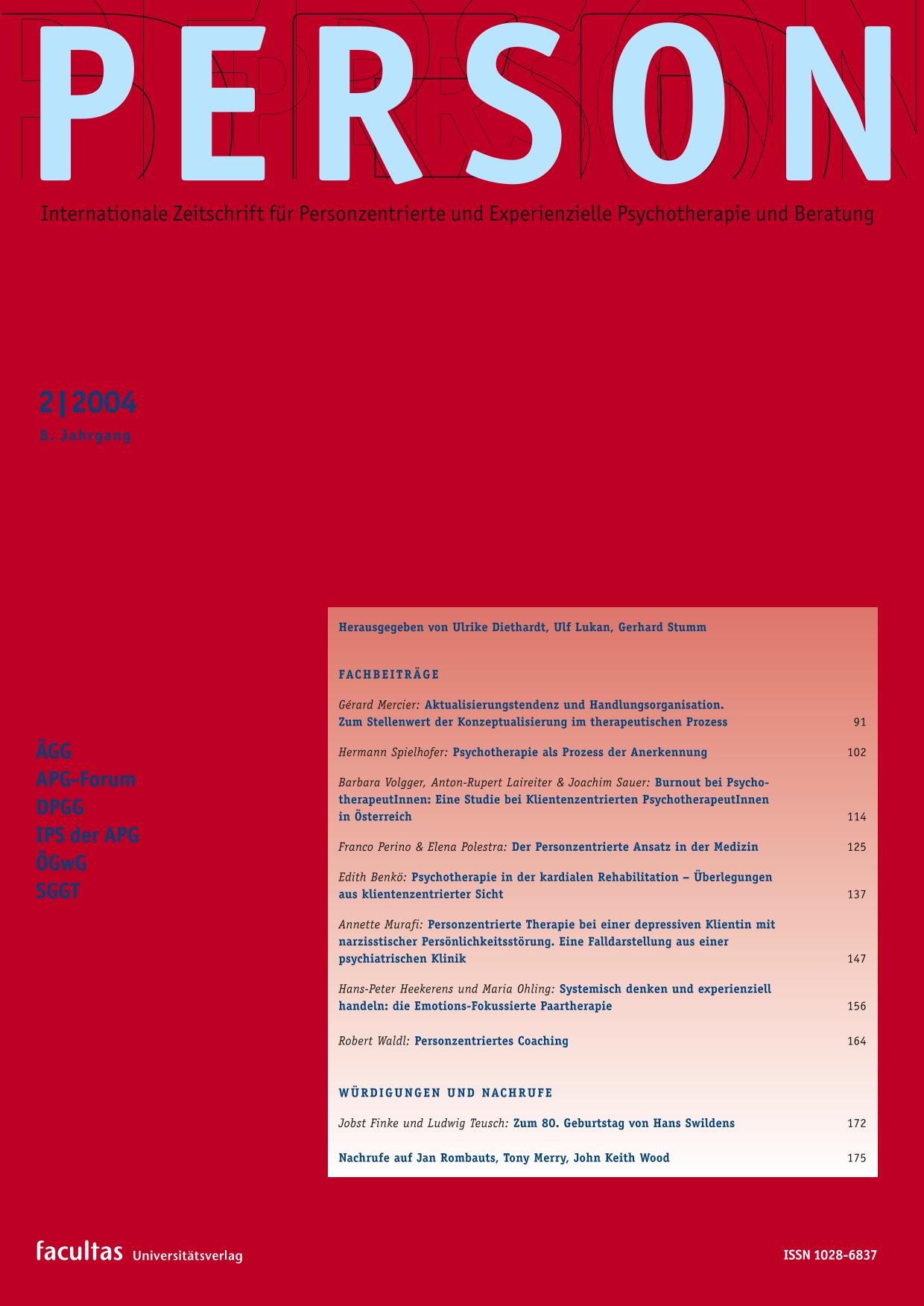Burnout bei PsychotherapeutInnen: Eine Studie bei Klientenzentrierten PsychotherapeutInnen in Österreich
Main Article Content
Article Sidebar
Abstract
Burnout in psychotherapists. A study with client-centred therapists in Austria. Burn-out is a problem often experienced by professional helpers. Because until recently client-centred psychotherapists have rarely been subject to research, a group in Austria was studied using the Maslach Burnout Inventory and the German version of the “Development of Psychotherapists-Common Core Questionnaire” (DPCCQ). These were developed by Orlinsky and his coworkers from the Society of Psychotherapy Research (SPR) as a measure for the determinants of burnout. 20.8% (n = 101) of the original sample (N = 535) took part in the study. Client-centred therapists obviously do not suffer very intensely from burnout: Approximately 8% reported having intense feelings of emotional exhaustion and another 25% to have mild to moderate ones. Objective variables such as gender, age, family status and professional training do not influence burnout, nor do other variables such as perceived social support, personal therapy and supervision in the past and at present. However, job-satisfaction, the number of patients in therapy, having control over important working conditions and a negative coping style with work-stress, correlated highly with burnout. Linear regression analyses led to the conclusion that burnout obviously is influenced by stressful conditions as well as by protective ones. “Satisfaction with their therapeutic work” was the most important protective factor; the “number of patients”, “not having control over the selection of their patients” and “avoidant and passive coping behaviours” were the factors which induced burnout the most.
How to Cite
Downloads
Article Details
Psychotherapy, burnout, Client-centred therapy, supervision, personal therapy

